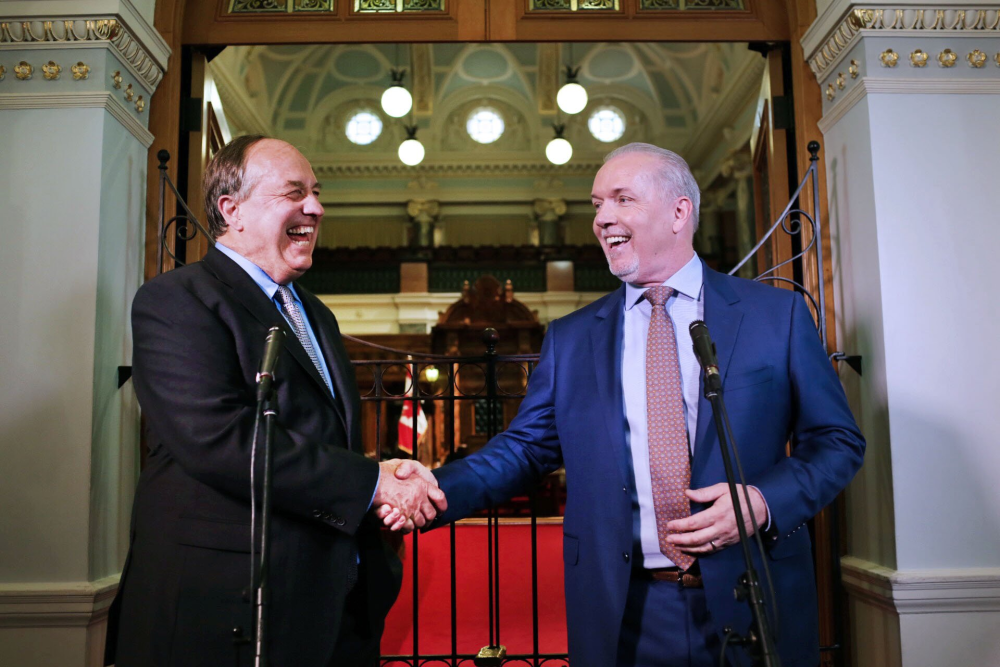In contrast to the United States’ regressive moves on climate change, British Columbia appears ready to embrace the clean economy after a roller-coaster provincial election in May. Days before President Donald Trump announced the U.S.’s withdrawal from the Paris Agreement, opposition party leaders in B.C. inked an accord that has the potential to, among other things, jumpstart clean growth and green jobs in Canada’s westernmost province.
On May 30, New Democratic Party leader John Horgan and Green Party leader Andrew Weaver signed a four-year confidence and supply agreement, setting the stage for an NDP minority government supported by the three-member Green caucus. The NDP-Green alliance will meet its first test when Premier Christy Clark of the B.C. Liberal Party (one seat short of a majority) recalls the legislative assembly on June 22.
For all of us who want to build a strong, future-proof, and inclusive B.C., the NDP-Green agreement is a promising start. Here are nine policy initiatives linked to clean growth that the NDP-Green alliance has committed to pursue.
1. Put forth a climate action strategy to meet B.C.’s targets for reducing carbon pollution.
2. Strengthen the B.C. carbon tax by $5 per tonne per year, starting April 1, 2018.
Close the loophole for fugitive emissions (such as in the oil and gas sector) and slash-pile burning.
3. Create a new annual climate action rebate cheque for low- and middle-income households.
4. Improve transit and transportation infrastructure, in partnership with the Mayors’ Council on Regional Transportation and the federal government, to reduce carbon pollution and create jobs.
Work with Metro Vancouver’s mayors to find a long-term funding solution.
5. Strike an Emerging Economy Task Force to address the changing business context over the next 10 to 25 years.
6. Create an Innovation Commission to support the technology sector.
Appoint an innovation commissioner to advocate for the B.C. tech sector in Ottawa and internationally.
7. Improve environmental standards in the forest sector and create local jobs.
8. Fix the environmental assessment process for resource development in B.C.
9. Build infrastructure that reduces carbon pollution and increases energy efficiency.
We need more details in order to assess the potential impact of these nine shared policy initiatives. However, it’s a positive sign that these commitments reflect some of the recommendations made in the Pembina Institute’s Vision for Clean Growth in B.C.
Our recently released action plan puts forward five priorities for the next B.C. government. These key priorities are: (1) Build a strong clean tech sector, (2) Position B.C. to be competitive in the changing global economy, (3) Make clean choices more affordable, (4) Stand up for healthy and safe communities, and (5) Grow sustainable resource jobs.
As the Greens’ Weaver stated in response to Trump’s Paris Agreement announcement, “climate action is an economic opportunity.” Taking action on these clean growth priorities will ensure tomorrow’s B.C. has a prosperous economy, thriving communities, and healthy families. So let’s get to work.
Stephen Hui is the B.C. communications lead at the Pembina Institute, Canada’s leading clean energy think-tank. Follow him on Twitter: @StephenHui.
This article appeared on HuffPost on June 9, 2017.









